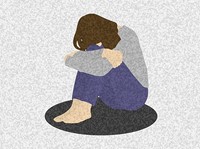Social Withdrawal: The Case of Hikikomori in Japan, A Subculture that Consumes Many Pirates

Social Withdrawal: The Case of Hikikomori in Japan, A Subculture that Consumes Many Pirates
Written in Japanese by Yuya Iwasaki
Translations and editing by Pirate Times
Many of our Pirate brethren suffer from social withdrawal. We sit hours in front of our computers and interact in social media groups, such as Discord, X, write blogs, code programs, and rarely interact with the outside world. We don’t go out and meet with friends in the physical 3D world in a healthy way like we should. In this article we would like to share with you information about a name for this subculture that has become prominent in Japan, which is called Hikikomori (引き籠もり, literally meaning pulling oneself into seclusion, social withdrawal).

In modern day Japan the issue of Hikikomori has become discussed as a major social problem. What was once considered a rare disorder, now is known to affect a large proportion of the population in varying degrees. Both in the public and private sectors, organizations struggle to find a solution to this problem. Almost everyone knows someone who is HIkikomori. Often it is a sibling or relative, and the family tries to hide the problem, going so far as to accommodate the individual that suffers from this growing psychological trauma where going outside of their house (or even their room) becomes difficult.

The definition provided by the Ministry of Health, Labour and Welfare, refers to the Hikikomori phenomenon as one where individuals, due to various factors, avoid social participation (including compulsory education, attendance at school, part-time work, and social interactions outside the home) and essentially remain within their homes for six months or more, even if occasional solitary outings are permitted.
According to a survey by the Cabinet Office of Japan in 2023, it is estimated that there are about 1.4 million Hikikomori nationwide, which is about 1.5% of the population. Many attribute an increase in Hikikomori to the impact of the COVID-19 pandemic, which exacerbated the problem. However, even prior surveys by the Cabinet Office estimated that there were over one million Hikikomori, suggesting that the pandemic alone may not be the sole cause of this epidemic. Efforts are being made by both the government and private organizations to implement support measures for the reintegration of individuals into society.

As someone who was born and raised in Japan, I have personally experienced something akin to social withdrawal and received support, including counseling and discussions, which ultimately helped me reintegrate into society. Nevertheless, the effectiveness of such support is limited to a small subgroup of individuals experiencing social withdrawal. This limitation arises from the unpredictable nature of the triggers for social withdrawal, making it challenging to anticipate and address the root causes. Furthermore, there are concerns that existing societal norms and institutions in Japan may hinder reintegration efforts. For instance, even if someone manages to secure employment, the prevalent culture of overwork might lead to fatigue and a relapse into social withdrawal. Additionally, societal norms that view unconventional life paths unfavorably could contribute further to this problem.
Addressing such issues may require more than just the efforts of individuals or small groups. We need comprehensive policies, organized group activities that aim to assist those who need help. Currently there is a lack of effective and comprehensive support policies in place. While the internet and advancements in technology have facilitated easier connections between society and individuals experiencing social withdrawal, society as a whole has not yet found a solution to this problem. Furthermore, the internet presents an analgesic effect, enabling Hikikomori to interact online but not facilitating their physical social encounters with others. We need to promote group activities where Hikikomori can slowly get out of the house and interact in social settings that take account for their psychological needs of acceptance. Overcoming this issue in Japan may still be a distant goal. Perhaps this issue is not just a Japanese one, but one that is only more pronounced in Japanese society. We hope that Pirates can help to create solutions to this problem by creating online support groups that will facilitate the reintegration of Hikikomori into society.